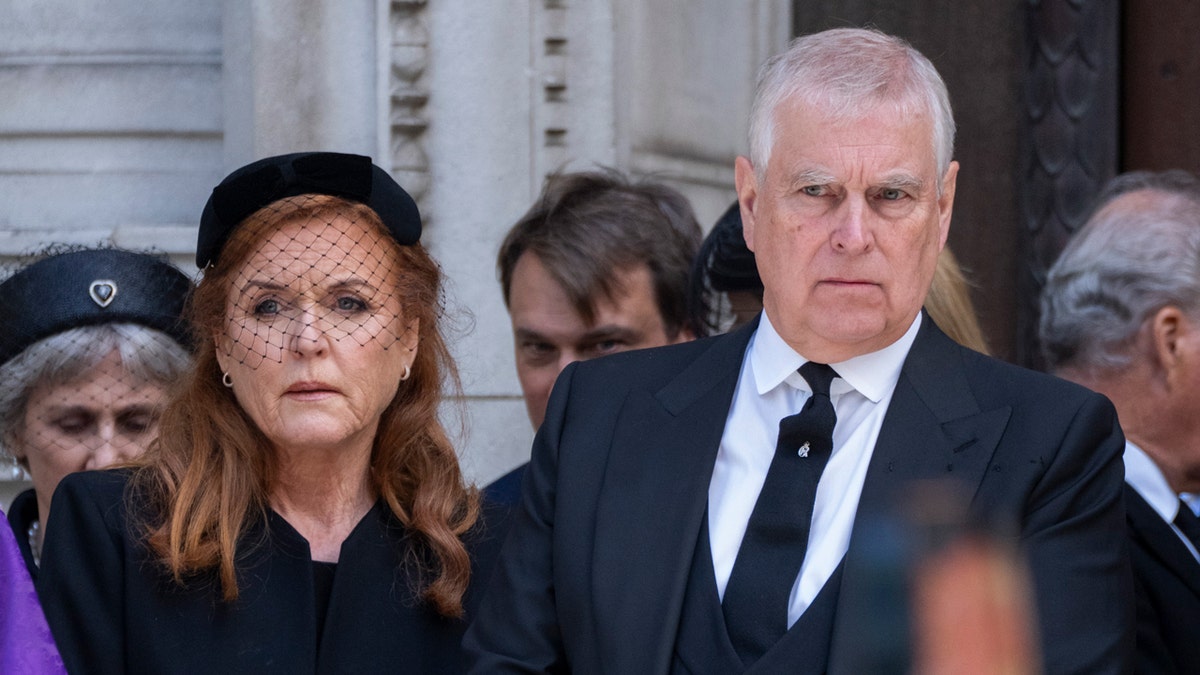
After all the humiliation, what’s left for Andrew Mountbatten-Windsor, the man once known as “Air Miles Andy”? Once a war hero, a favourite of his late mother, and a visible figure of royal duty, he now drifts in the shadows of a family that can hardly bear to utter his name. The titles may remain technically intact, but the aura of royalty has long since evaporated. What’s left is a man stripped of dignity, direction, and most painfully purpose.
The question now buzzing among palace watchers and gossip columns alike is simple, what’s next for Andrew? A few say he’s plotting revenge, a tell-all that could send Buckingham Palace into crisis mode. Others, less forgiving, imagine his story ending in a courtroom or worse, a prison cell. But the more intriguing whispers circle not around Andrew himself, but around the woman who knows him best, Sarah Ferguson, Duchess of York.
Ah, Sarah, forever the survivor, the woman who has fallen and risen more times than the monarchy’s public approval ratings. If anyone can write the next explosive chapter of royal scandal, it’s her. She has the charm, the pen, and the motive. And let’s be honest, she’s never been one to hold her tongue when there’s a chance to mix a bit of truth with a dash of theatre.
Andrew’s own options are bleak. Public rehabilitation is out of the question. His disastrous BBC interview in 2019, arguably the single greatest act of self-immolation in modern royal history cemented his reputation as tone-deaf and delusional. The monarchy’s PR machine swiftly went into damage control, pushing him off the royal stage, quietly removing his duties, and pretending he’d simply “retired.” Retired from what, exactly, no one quite knows. But the exile was clear: Andrew became the family embarrassment, the uncle no one invites to Christmas but can’t quite disown.
Behind palace doors, his presence reportedly remains a nuisance, a reminder of everything the modern monarchy is desperate to move past. King Charles has made it clear he wants a slimmed-down monarchy: fewer working royals, less drama, tighter control. Andrew’s existence is the opposite of all that a scandal in a suit, a living headline.
Yet humiliation breeds strange impulses. And Andrew, by all accounts, remains convinced of his own innocence and importance. There’s a certain delusion to his defiance. Those close to him say he feels betrayed, not by the public or the press, but by his own family. He reportedly believes he was abandoned to protect the institution. And perhaps he’s right. The monarchy’s survival depends on keeping its stains hidden under the velvet drapery.
If Andrew ever does decide to tell his side of the story, the palace will tremble. He might not be a master of public relations, but he knows where the skeletons are buried. From royal finances to personal feuds, he’s had a front-row seat to the family’s most private dramas. Imagine a memoir written in resentment, a mixture of justification, blame, and selective truth. It would be disastrous, yes, but also irresistible.
But the more likely storyteller is Sarah Ferguson. She’s already written multiple books, ranging from children’s tales to semi-autobiographical novels, and she’s cultivated a career out of being both insider and outcast. Unlike Andrew, she understands the game, how to tease the press without burning bridges entirely. And she’s got a unique position: close enough to know everything, far enough to speak freely.
If Sarah decides to write the truth or even her version of it, King Charles and the “royal gang,” as some call them, will have sleepless nights. She’s witnessed their hypocrisies firsthand, from the icy formality of royal life to the quiet cruelties of its hierarchy. A Ferguson memoir could expose not just Andrew’s downfall, but the fractures that have always existed within the House of Windsor. She could portray them as they truly are: a family held together by protocol and self-preservation, not affection.
Still, there’s another side to this saga, a pathetic, human one. Andrew, once full of swagger and privilege, now lives a kind of half-life in Royal Lodge, clinging to what’s left of his title and his past. The man who once rubbed shoulders with the powerful and the glamorous now fights petty battles about security privileges and rent disputes. His fall from grace isn’t just scandalous, it’s Shakespearean.
And yet, the monarchy endures. That’s its genius and its curse. Scandal after scandal, it survives not by transparency, but by endurance. It buries the past under ceremony. It waits out the storm. Andrew is merely the latest royal casualty of that cold calculus.
Still, there’s an undeniable sense that this story isn’t quite over. Whether through a bitter autobiography, a whispered leak, or Sarah’s inevitable pen, something will surface. The British public may no longer care for the Duke himself, but they’ll devour every sordid detail of what comes next. Because that’s the paradox of royal disgrace: we claim to despise it, but we can’t look away.
And if there’s one thing the Windsors have always excelled at, it’s turning their misfortunes into entertainment for the masses. Andrew’s humiliation may have stripped him of dignity, but it’s also given him a new, unasked-for role: the ghost haunting the gilded palace, the scandal that refuses to die.
So what’s next for Prince Andrew? Not redemption, surely. Not prison, most likely. But exposure... yes. Whether it’s through his own misguided attempt at vindication or Sarah’s gleeful confessions, the truth, or at least a version of it, will come crawling out.
And when it does, it won’t just embarrass Charles, it’ll remind the world that behind the gold-trimmed façade, the House of Windsor is, at heart, a deeply human, deeply flawed family. A family forever running from its own reflection.

No comments:
Post a Comment